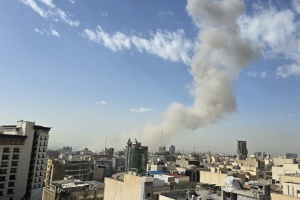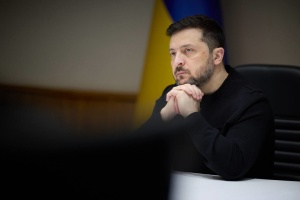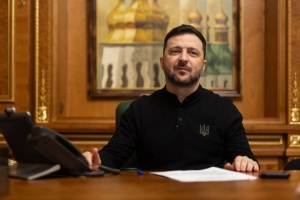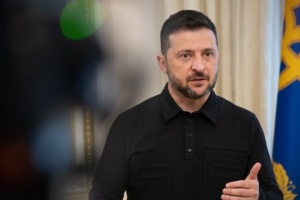
Rope for Vucic: what the Gas Alliance with Russia did to Serbia
In early October, Serbian President Aleksandar Vucic said he would have to "take the rope and hang himself" without Russian gas. And with the gas, Serbs would be able to walk around their flats in T-shirts and shorts in the cold. When he learned the new price for this Russian gas, there was another reason to reach for the rope. This week, the president is flying to Moscow to ask for a discount.
Although Russia and Serbia are considered allies, it is not a partnership of equals. This is a kind of asymmetric combination in which Moscow constantly demonstrates its dominance. It uses Serbia to its advantage, pushing its own interests, while not particularly taking into account the interests of the ally.
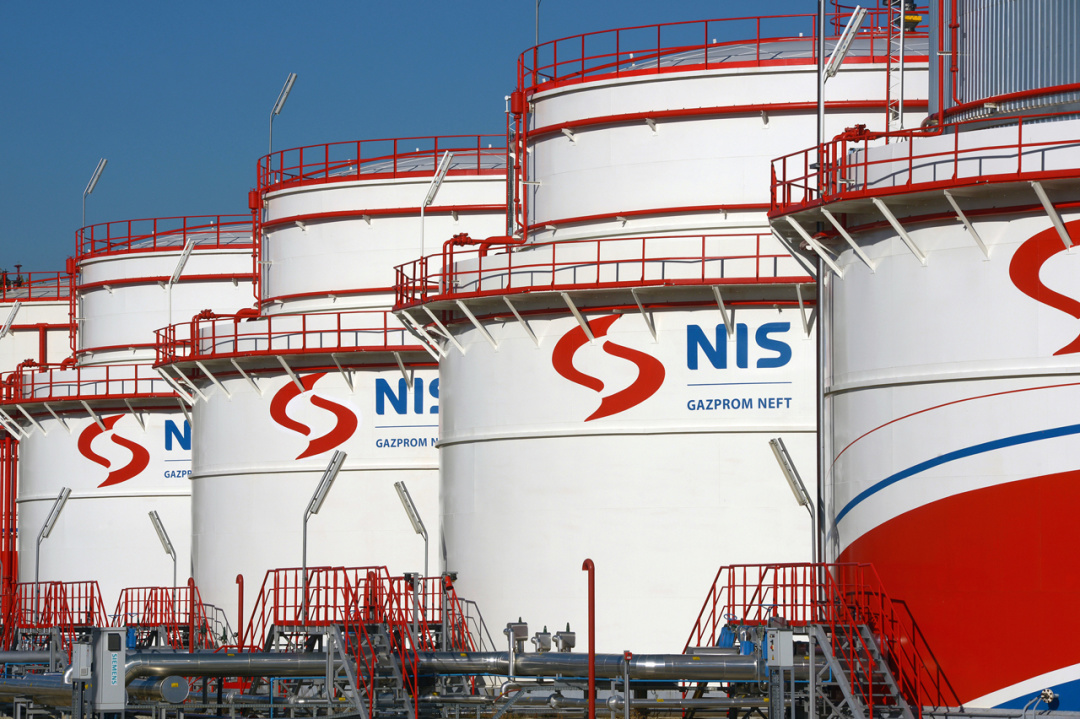
Serbia has given Gazprom a majority stake in its largest oil and gas company, NiS, as well as signed other agreements that linked the country closely to Russian energy supplies. Despite the objections by the EU and US, Serbia has built the so-called Balkan Stream, a Russian-built section of a gas pipeline to supply natural gas to a number of Balkan countries bypassing Ukraine, connecting the Turkish Stream from the border with Bulgaria to the border with Hungary. It was about this decision that Vucic said that if he "did not have the courage," he would have to pick up a rope. Everyone wants to walk around the flat in winter in T-shirts and shorts, he says, this requires gas, and there is nowhere else to get it but in Russia.
Vucic has called the claims that Russia uses energy and gas supplies as a tool of pressure "ridiculous." But now, Russia is giving him little reason to laugh.
As of today, the Russian side has offered Belgrade to buy gas at a price of $790 per 1,000 cubic meters. Gas supplies at this price should begin on January 1, 2022. It is almost three times more expensive than Serbia pays now.
Vucic said that Russia had proposed a formula according to which 70% of the price would be calculated from the stock market value and 30% based on the oil formula. Serbia proposes to do the opposite: 70% based on the oil formula and 30% based on the stock market value. In that case, the country will buy gas for $510. "But we can't pay for it, either" Vucic said.
The President of Serbia hopes that he will be able to reach an agreement with Russia. "I tell you now: I know Putin, and we will have the best price. I haven't talked to him yet, I'll just talk, but we will have the lowest price."
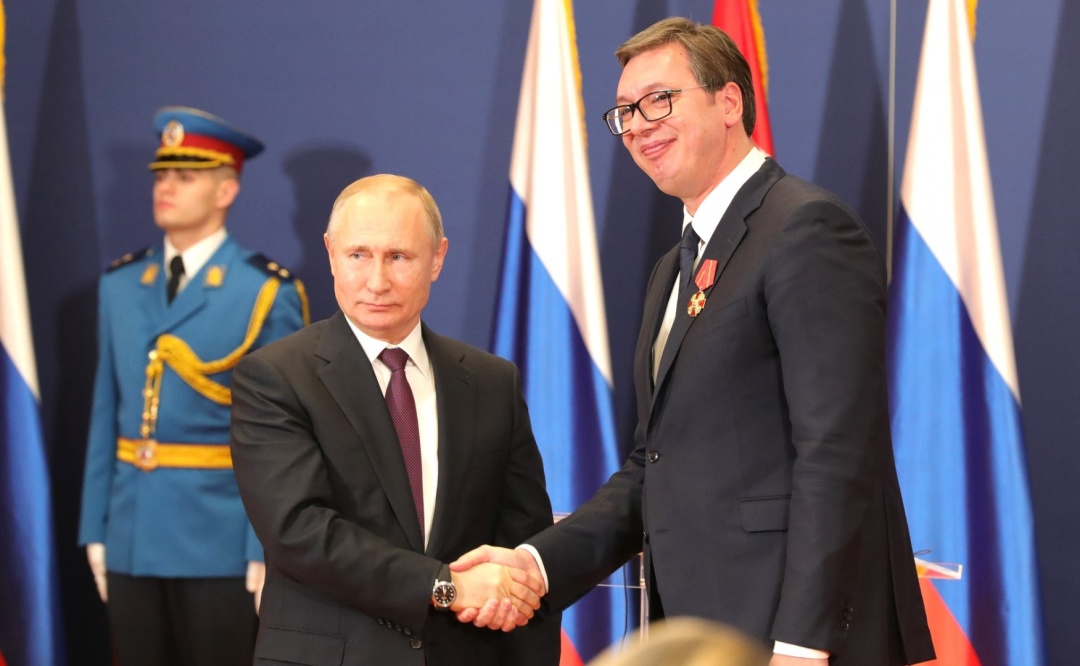
Their meeting is tentatively scheduled for November 25. The main issue on the agenda will be cooperation in the energy sector, in particular going over the terms of the future gas agreement. The question of what Belgrade will offer (what it will yield politically and economically) to the Kremlin remains open.
The Kremlin's intentions can be broken down into a maximum programme and a minimum programme - or "spiritual" and material needs.
Regarding the first option, it is not officially announced, but has rather been simply presented as vox populi, general popular considerations:
"Crimea has not yet been recognized as Russian, and the price of gas does not work;
If they play the fraternal card, they should probably create a union state with Russia; and
If they can't pay, they can simply join Russia, no problem.
The Kremlin also apparently has secret hopes that "Russia will split a gas-frozen Europe." At least one of the propaganda publications is dedicated to this topic. They cite Vucic's statement that Serbia could ban the export of electricity so that "people would have warm houses." And they wonder who else could follow their example.

In contrast to "spiritual" needs, the second part of intentions, purely material, is discussed openly. They cannot forgive Serbia for last year's "Washington agreement" (although Russia officially welcomed it, unofficially calling Serbia "an instrument of the US game against Russia and China"). Another thing that concerns Russians is that Serbia has the official status of a candidate country for EU membership.
Therefore, the minimum programme is as follows:
- Give diplomatic status to the staff of the Russian-Serbian Humanitarian Center in NiS - in the West it is considered a powerful Russian spy base;
- Abandon plans to diversify energy supplies, which is what the EU needs from Serbia;
- Confront the EU, disobey European rules - Serbia, along with Ukraine, is a member of the Energy Community, whose member states undertake commitments in the field of energy, under which they create a regulatory framework in accordance with European standards; and
- Sell petrochemical company HIP-Petrohemija - a strategic enterprise, the only producer of polymers and synthetic rubber in Serbia
According to the Balkan newspaper Direktno, Vucic is probably the only head of state in the world who "threatens to hang himself when he finds himself in situations he can't handle or can't control." In 2019, he said on another occasion that he wanted to "hang from the wind turbine."
We can assume that Vuchich's talks with Putin will not be easy.
But according to Daniel Server, a professor at Johns Hopkins University and an expert on Balkan politics, Vucic has already chosen his side: he has established autocracy in the country and focused his foreign policy on the East. And he reiterates the Kremlin's mantras about the current gas crisis, blaming Europe for it. He also calls Putin a "kingmaker" - they say he can "influence people and prices."
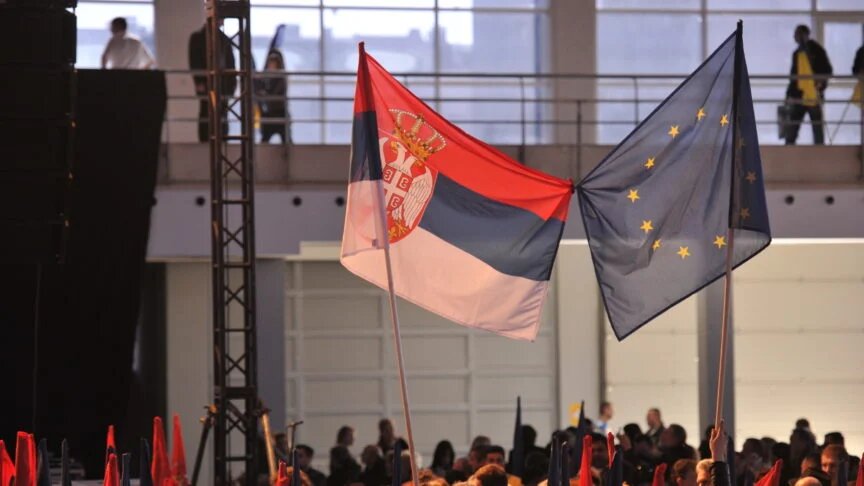
In general, Serbia is "looking eastward." This leads experts to ask, "Is it fair for the EU to offer membership to an increasingly anti-Western Serbia, denying it to Ukraine, where citizens believe in the EU, look to it and hope for a future that is much closer to the West than to Russia?"
Russian media are persistently spreading misinformation that Russia is Serbia's main economic philanthropist. Although, according to the Centre for European Policy Analysis, its trade and investment in this country are not only insignificant compared to European ones, but are also based mainly on non-transparent agreements that benefit only corrupt politicians.
Can it benefit Serbia that Russia uses it as a small cog in its great geopolitical game? Close ties with Moscow can contribute to short-term situational benefits, but they have highly negative strategic consequences. This is eloquently demonstrated by the example of Belarus: the price for embracing Putin is becoming an exile and loss of the future.
Center for Strategic Communication and Information Security

